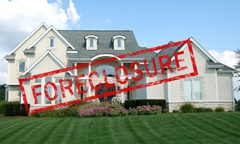Q: We are going through foreclosure. We will not be able to pay the difference between what is owed on the mortgage and what the home will bring at the foreclosure sale.
I am on disability and work a part-time job. My husband is also on disability and works a part-time job. We have no other assets, no savings account and no other money anywhere. We cannot afford to make any kind of a payment. What can the mortgage company do to us if we cannot pay?
A: I’m sorry you are going through such troubled times. In some states, your lender might have the right to go against you for a deficiency judgment – the difference between what the lender receives from the foreclosure sale and what you owe on the loan. In reality the lender may be unable or unwilling to take any further action against you, even in a state that allows deficiency judgments.
In some states, lenders can’t sue borrowers for a deficiency judgment when they foreclose on a home in a situation like yours. In other states, laws may allow lenders to get deficiency judgments but judges aren’t giving the lenders that right. In other states, deficiency judgments aren’t allowed at all in some circumstances. Even if they get the right to go after you, some lenders recognize that having a deficiency judgment will do them little good if the people they’re suing have nothing.
In your situation, even if your lender has the right in your state to obtain a deficiency judgment against you, how would the company benefit? Both of you work part-time, are on disability and don’t have a wealth of other assets to pay your lender. Certainly, the lender could spend additional money to try to get more money from you, but the legal team would probably decide that they are spending good money that will not result in a return on the investment.
In the current economic climate, many lenders have moved beyond looking to go after borrowers for additional money. They have come to recognize that while they may have a legal right to collect the deficiency, it’s not worth the time and cost.
To answer your question, if you’re truly broke and have no other assets, there may be little that the lender can do to try to collect. The foreclosure has negatively affected your credit history and your credit score has certainly been hurt. One of the things that a lender reports to credit reporting bureaus is a foreclosure, so the foreclosure’s affect on your credit score is huge. So while the bank could, if state law allows it, proceed against you for the deficiency judgment, they probably won’t. The foreclosure itself has affected your credit in a bad way.
In the future, we may see more lenders trying to pursue claims, but for now lenders are trying to get through all of the foreclosures they have on hand and move on. The one thing they leave behind is the negative affect of the foreclosure on your credit history and credit score.
Read more on this related issue: Deed In Lieu Affects Your Credit Score and Condominium Foreclosure Affects Credit







Leave A Comment